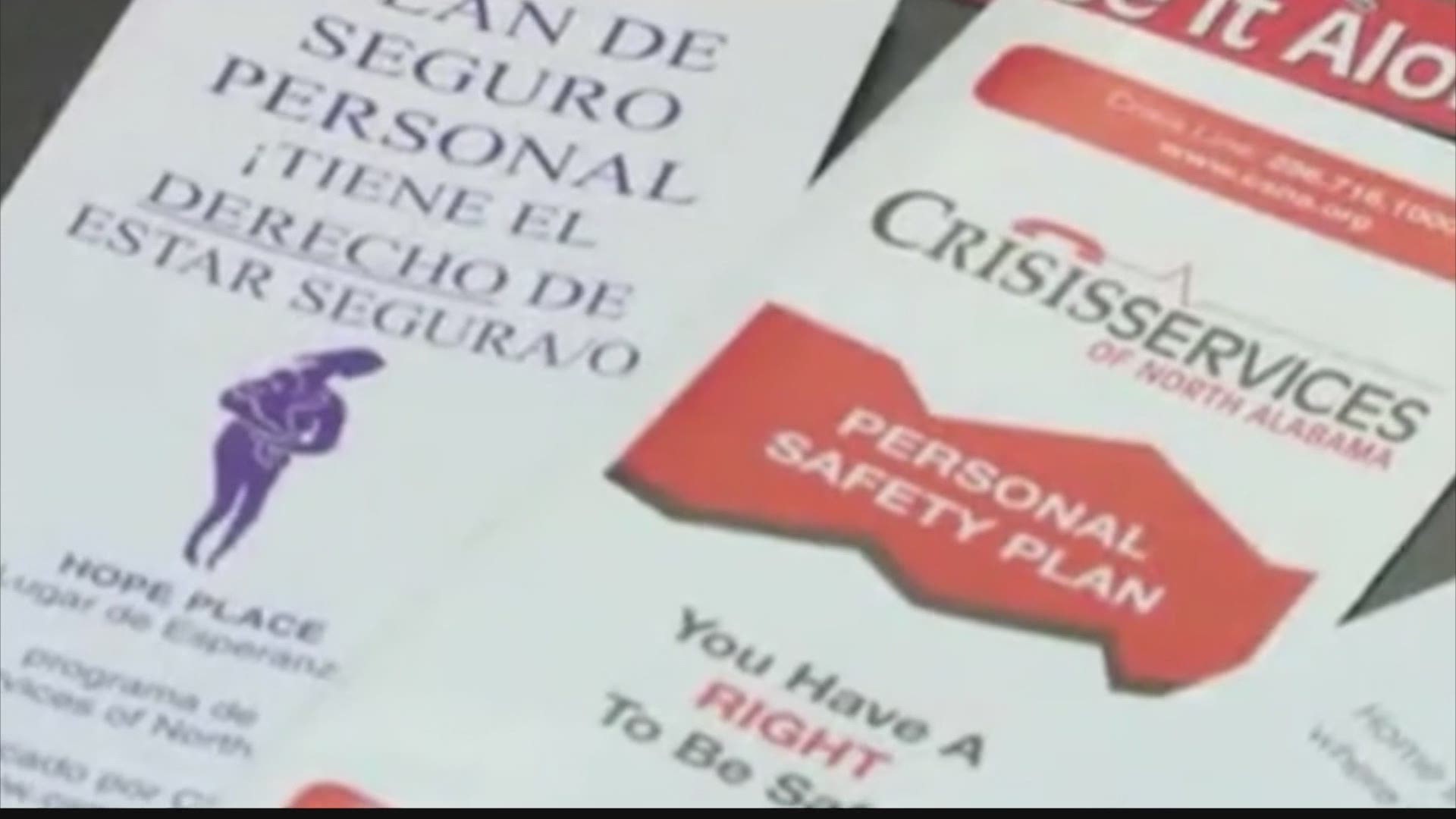HUNTSVILLE, Ala — One in four women, and one in ten men experience interpersonal violence.
Keep in mind, this violence comes in many forms.
It can be sexual, physical, and emotional. At the start of the pandemic, when we were all stuck at home, more people found themselves looking for help because they were stuck spending more time with their abusers.
Our Sydney Stallworth wants you to know there are resources available in this week’s Mental Health Monday.
We’re about a year into the pandemic and a lot of places are opening back up, which is great. But, all in all, we’re still spending a lot more time at home than we normally would and this can be a very scary situation if your home is not a safe space.
We met with Becky Cecil, Development Manager of Crisis Services of North Alabama (CSNA). She says, “At the beginning of the pandemic, we saw about a 25 percent increase in calls related to domestic violence.”
They provide resources, shelters, care and counseling for anyone in a crisis situation in the Valley. At the start of the pandemic, they were hands-on in helping meet the demand.
Becky Cecil tells us, “Our domestic violence responders were going out with police more often to domestic violence calls. We were getting more calls on our helpline. I just recently read, from 2019 to 2020, there was about an 8 percent increase in domestic violence. They’re considering that to be kind of the ‘floor’ because domestic violence is so under reported, it’s hard to know what that number really is.”
Calls have started to trend down as the pandemic continued. But, CSNA says that could just mean that less incidents are being reported.
They want you to know you do have advocates locally and they have a lot of ways you can reach out for help. The resources are all quick and confidential.
Becky Cecil says, “One of our biggest programs is our HelpLine because we kind of consider that to be out ‘front door’. Our HelpLine is 24/7, seven days a week, 365 days a year. You can call on Christmas, New Years, Thanksgiving-- any day of the year, we will have a staff member or a trained crisis counselor available... You can get services. If you need to go to a shelter, you can go to a shelter. If you need counseling or a support group, they can refer you to that. If you need a court advocate, we can refer you to that. So, what Crisis Services does as a whole is we respond to everybody in crisis that we possibly can.”
She adds, “We want our clients to feel safe coming to us. We are not going to give their information to anybody. We are not going to let their abuser know where they are. If they call our 24/7 helpline, they don’t have to give us their name or information. If they’re not ready to leave and they just want to talk to somebody. We’re here for that.”
CRISIS SERVICES OF NORTH ALABAMA HAS A FREE TEXTLINE (256)-722-8219.
Click HERE to be redirected to CSNA website. They’ve considered the risks that can come along with looking for help while at home with an abuser. Becky Cecil says, “On our website, we have an escape button so if somebody is looking at our services and an abuser walks in, they have one click to get out of it.”
If you’re worried about how you'll pay for these services-- don’t.
Becky tells our reporter, “Our services are all free. We never charge for our services because we realize when someone is going through something traumatic, something a lot of us couldn’t even imagine… We don’t want them to try to figure out how they’re going to pay for it.”
Becky Cecil also brought up the fact that when people hear the words ‘domestic violence’, their first thoughts go to physical abuse. But, emotional abuse is very real and just as dangerous. We want you to know, you have local resources that are available to you.
If you, or anyone you know is in need of suicide crisis prevention, you can call the National Suicide Prevention Lifeline at 1(800)-273-TALK.
You can also receive local assistance from Crisis Services of North Alabama using their 24/7 HELPline at (256) 716-1000.
- If you are a veteran (or your loved one is a veteran), you can reach the Veterans Crisis Line by calling 1-800-273-8255 and Pressing 1. You can also send a text to 838255.
- Crisis Services of North Alabama: (256) 716-1000
- Anonymous Text Crisis Line (256) 722-8219
- National Suicide Prevention Lifeline : 1(800)-273-TALK
- Trans Lifeline at 877-565-8860
- You can call The Trevor Project, an LGBT crisis intervention and suicide prevention hotline, 24/7 at 1-866-488-7386.
- Crisis Text Line 24/7 by texting “START” to 741-741.
If you are having suicidal thoughts, or you know someone who is, help is available. In the U.S., call the National Suicide Prevention Lifeline at 1-800-273-8255. You can also text with an emotional support counselor with the Crisis Text Line by texting HOME to 741741.

